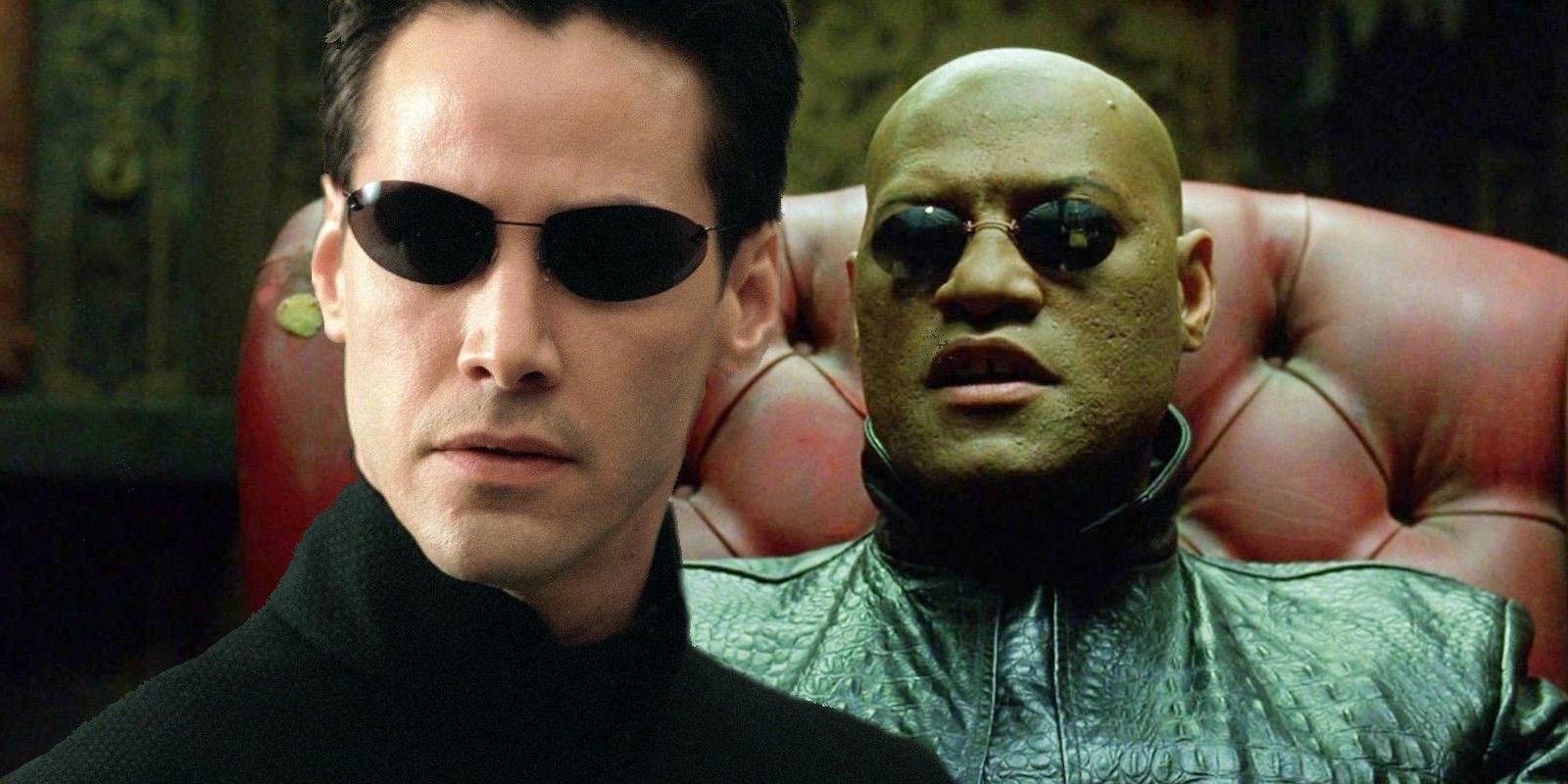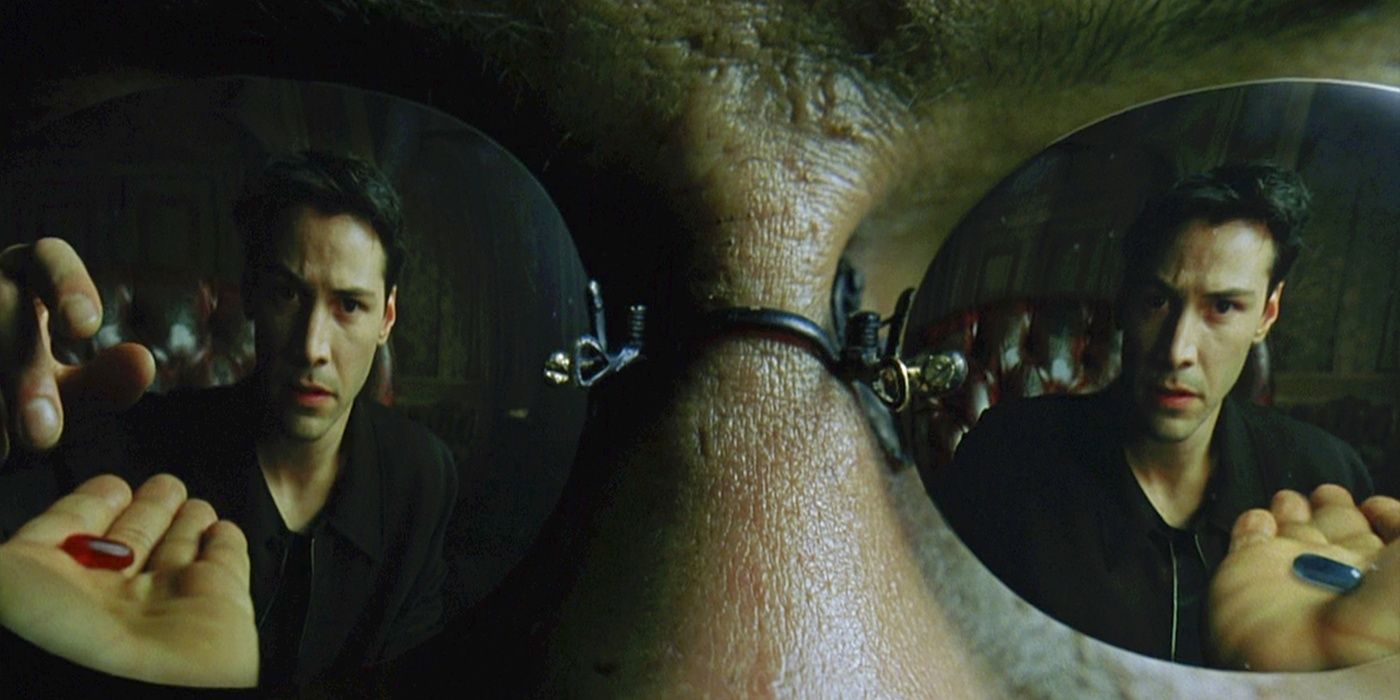
The Matrix 4 will have to change the franchise's philosophy and meaning in order to stay relevant, but that might prove a blessing in disguise. Released in 1999, the Wachowskis' original Matrix movie was not only praised for its groundbreaking visuals and stunning action, but also for its intelligent social commentary and philosophical themes. A large part of this deeper meaning derives from key issues of the day. Released on the brink of the millennium, some theorized that the Y2K bug would shut down all computer systems on the stroke of midnight on New Year's Eve. The late 1990s were also a transitional time in terms of technology, with digital gadgets becoming increasingly prominent and the internet taking an ever more vital role in the everyday lives of the western world.
The Matrix expertly played into these fears and uncertainties with its story of a virtual reality prison and a world overrun by machines. In some ways, the Matrix itself can even be likened to the world wide web, with users plugging in to explore a seemingly unlimited supply of knowledge and items. Meanwhile, Agent Smith represented the kind of digital virus the public were rapidly learning could be a threat to their security in real life. These allusions made The Matrix feel visceral, relevant and intelligent, but those issues are wildly outdated in 2020. The Matrix 4 is finally due out next year, and will find an audience who have long forgotten the Y2K hysteria, who possess instant online access in their pockets and who can live an entire existence on the internet should they wish. But while there's an obvious need for the new Matrix movie to update its metaphors and meanings, there's a wider, potentially more sinister array of new topics to take advantage of.
Viruses, bugs, glitches and digital frameworks all feel a little tired in the present day, and certainly don't possess the unknown qualities they did in 1999. Over the past 20 years, however, new fears have arisen as societies accept the increasing digital influence in their lives. A big example would be data privacy. Brands encourage customers to sync devices and accounts so that everything falls under a single umbrella. Large quantities of information are stored and sold, and there can be a lack of transparency over how this is used, with several high-profile abuses of data making headlines in recent years. While this issue wasn't on the audience's radar in 1999, it's a major concern for companies and individuals today... and tailor-made for the world and style of The Matrix.

In the original Matrix trilogy, the virtual world only became stable once an element of subconscious choice was introduced. and the story ended with the Architect promising everyone hooked up would be given the option of disconnecting. The Machines probably won't have any interest in keeping track of online shopping habits, but they'll certainly be looking for a way to keep people plugged in and taking the blue pill. Logically, this means a tighter hold over the humans hooked into the Matrix and this storyline could tap into the audience's concerns over data privacy and being under surveillance. The Machines already know everything that goes on inside the Matrix, of course, but what if they decided to try and isolate the factors that motivate a person to take the red pill and use that data as a counter strategy.
Another topic ripe for Matrix examination is social media. When the original trilogy released, MySpace Tom and Mark Zuckerberg were far from household names, but two decades later, social media has drastically changed how people interact and how ideas are shared, both for better and for worse. That sense of virtual conversations in an already virtual Matrix could prove a fascinating dynamic. That's not to say The Matrix 4 should have its own version of Twitter, but can two people who only know each other inside the Matrix become allies in reality? Or have the Machines developed a method of directly influencing people inside the Matrix similar to how bots might sway public opinion in real life? Even though technology in society has dated The Matrix's themes badly, the potential for smart philosophical storytelling is better than ever.
https://ift.tt/2AoFLYR
May 31, 2020 at 05:52AM




